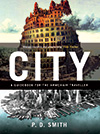Faust, the Physicists & the Atomic Bomb
26 September 2008 | atomic bomb, Bohr, Doomsday Men, Einstein, Faust, German culture, Goethe, nuclear weapons, Russell Square, Science, Science & literature, scientists, Szilard, Von Braun, Wells, WMD, WW2 | Post a comment
The Publications of the English Goethe Society (vol 77, no 2, 2008, 101-12) has just published my paper "Faust, the Physicists and the Atomic Bomb", based on a lecture I gave to the Society in 2006. It explores the cross-fertilization between science and literature in the 1930s, at key moments in atomic physics and in the development of the atomic bomb - themes that are also discussed in my book Doomsday Men, which is out this month in paperback.
In 1932, the centenary of Goethe’s death, physicists attending an international conference at Niels Bohr’s Institute of Theoretical Physics in Copenhagen performed a parody of Goethe’s Faust. Goethe’s critique of science in the play made this a significant choice at the dawn of nuclear physics. James Chadwick’s discovery of the neutron that year was highlighted in the performance.
In 1933 while in Bloomsbury, London, the physicist Leo Szilard realized how to use a self-sustaining neutron chain reaction to release the energy of the atom. The previous year Szilard had read HG Wells’ novel The World Set Free (1914) in which the phrase “atomic bomb” was coined. As well as considering the Faustian themes in the novel, I explore parallels between Wells’s scientist, Holsten, and Leo Szilard himself. I argue that this is a clear example of fiction influencing science, and that Goethe’s notion that scientific knowledge and self-knowledge should evolve hand-in-hand, remains a valuable insight when considering the role of scientists in the creation of weapons of mass destruction.
You can download a PDF of my paper here.

